According to Lawyer Le Van Thiep, Toan Cau Law Office, Hanoi Bar Association: The fact that the Department of Document Inspection of the Ministry of Justice pointed out illegal contents in Circular 06 is completely correct and necessary to ensure the consistency and uniformity of legal documents; Ensure the feasibility of regulations issued by state management entities.
Lawyer Thiep analyzed: The regulation that credit institutions (CIs) must have measures to block loan capital in Circular No. 06/2023/TT-NHNN is not in accordance with the law because the nature of a credit contract is a bilateral contract, the rights of one party are the obligations of the other party and vice versa. The purpose of a property loan transaction is that the borrower has the full right to possess, use, and dispose of the borrowed property after fulfilling the necessary conditions to borrow the property.
According to the provisions of Clause 2, Article 3 of the current Civil Code, the parties have the right to reach an agreement that is not against the law and social ethics. In principle, credit institutions can request and request competent authorities to carry out the blockade in cases prescribed by law.
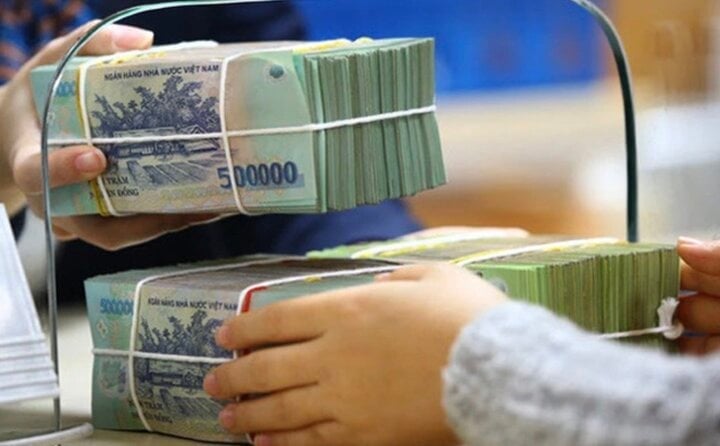
The State Bank's request to freeze the loan disbursement amount at the lending credit institution to ensure the performance of obligations is not in accordance with the law. (Illustration photo: CafeF)
"The freezing of borrowed assets under the credit contract will prevent the borrower from exercising his/her rights as prescribed by law and the purpose of the civil transaction will not be achieved. After the credit contract comes into effect and the lender has disbursed to the borrower according to the contract, this is the time to hand over ownership of the assets to the borrower.
The lender must of course appraise the loan use plan and the borrower must take security measures and register the security transaction according to regulations. Therefore, the regulation that credit institutions must take measures is not suitable in practice," said Lawyer Thiep.
On the other hand, according to current regulations, the entity issuing the Circular is not allowed to stipulate contents that need to adjust the law contrary to legal documents of higher value, namely Decree 21/2021/ND-CP and the Civil Code.
Also analyzing this issue, lawyer Le Van Hoi, Director of My Way Law Firm, pointed out: According to the provisions of Point c, Clause 6, Article 1 of Circular 06/2023/TT-NHNN, it is noted: "In case of lending to pay money to ensure the performance of obligations, there must be measures to block the loan disbursement amount at the lending credit institution according to the provisions of law, the agreement of the parties in the loan agreement until the termination of the guarantee obligation" , this is not in accordance with the provisions of current law.
According to the provisions of Section 3 of the 2015 Civil Code on measures to secure the performance of civil obligations, 9 security measures are recorded, including: Pledge, mortgage, deposit, escrow, deposit, reservation of ownership, guarantee, credit, and property retention. Among the above security measures, only the security measure Escrow is recorded as being allowed to freeze assets in Clause 1, Article 330 of the 2015 Civil Code. "Escrow is the act of the obligated party depositing an amount of money or precious metals, gemstones or valuable papers into a blocked account at a credit institution to secure the performance of obligations", there is absolutely no provision on "blocking the amount of loan disbursement at the lending credit institution" as prescribed in c, Clause 6, Article 1 of Circular 06/2023/TT-NHNN.
Accordingly, the regulation on "blocking loan disbursement amount" is not consistent with the security measures of the 2015 Civil Code.
Not only is this provision contrary to the provisions on measures to ensure the performance of civil obligations, it is also inconsistent with the provisions on account freezing stated in Clause 2, Article 12 of Decree No. 101/2012/ND-CP on cases of account freezing.
In this regulation, only 0 cases of account freezing are recorded: (i) When there is a decision or request from a competent State agency as prescribed by law; (ii) When the payment service provider discovers a mistake or error in the money transfer; (iii) When there is a dispute between joint payment account holders, clearly, Circular No. 06/2023/ND-CP is a document with lower legal effect than Decree 101/2012/ND-CP, so it is not possible to add more cases of freezing.
Negative impact on business
Not denying that the regulation at Point c, Clause 6, Article 1 of Circular 06/2023/TT-NHNN is significant in ensuring capital sources of credit institutions, controlling risks and improving credit quality, but Lawyer Le Van Hoi still believes that this regulation will affect the operations of enterprises and the rights of owners (the party receiving payment from loan capital to secure obligations).
This causes the owner's capital to be slowly put into circulation.
“The most typical example is that if a borrower borrows money to deposit to buy real estate in the future, the real estate project investor will not be able to use the customer's deposit (from the loan) but will be frozen according to the provisions of Point c, Clause 6, Article 1 of Circular 06/2023/TT-NHNN,” Mr. Hoi cited.
Meanwhile, Lawyer Le Van Thiep said that regulations that are not suitable to reality can have serious impacts on individuals, organizations, and businesses in production and business activities as well as impact the economy .

The illegal content of Circular 06 may have a negative impact on businesses. (Illustration photo: Cong Hieu).
Such regulations will cause difficulties for credit institutions in lending and carrying out credit activities and make it difficult for businesses to access capital from credit institutions.
“For businesses and many other entities, capital from credit institutions is a basic and important resource. If they cannot access this resource, it will lead to stagnation in production and business activities as well as hinder socio-economic development,” Mr. Thiep commented.
The main activity of credit institutions is to borrow to lend, so if they cannot lend, the entire system of credit institutions will be seriously affected, weakening the banking system and causing other unforeseeable consequences.
Similarly, lawyer Nguyen Thanh Ha, Chairman of SB Law Firm, said: Circular 06/2023/TT-NHNN has points that are inconsistent with the provisions of the 2015 Civil Code and Decree 101/2012/ND-CP, leading to limitations and damages to businesses.
Firstly, this shortcoming limits the right to choose measures to ensure the performance of obligations in civil relations of enterprises.
Second, it increases the cost of the enterprise. Lending to contribute capital is not a "case of lending to pay money to ensure the performance of obligations" that requires blocking the loan. If understood in the way that the enterprise borrows money but is not allowed to use the money, the capital recipient will find it difficult to implement the project and fulfill its obligations to the capital contributor. This also means having to have double collateral (for the bank to lend and for the bank to release the disbursed amount) for the same loan. This regulation is unreasonable, causing a waste of the enterprise's resources.
Third, it makes it difficult for businesses to access loans. Businesses that borrow capital are usually small and medium-sized enterprises, operating in the production and business sectors. The blockage of loan disbursement will make it difficult for businesses to use loans for production and business activities, thereby affecting the competitiveness and development of businesses.
In addition, the measure of blocking the loan disbursement amount will make it difficult for businesses to use the loan capital for production and business activities. This can affect the competitiveness and development of businesses. This can also make it difficult for businesses to pay other debts, which can lead to bankruptcy risks for businesses.
Previously, the Department of Inspection of Legal Documents (Ministry of Justice) concluded the inspection of Circular 06 dated June 28, 2023 of the Governor of the State Bank of Vietnam (SBV) amending and supplementing a number of articles of Circular 39/2016/TT-NHNN dated December 30, 2016 regulating lending activities of credit institutions and foreign bank branches to customers.
In the concluding document, the Department of Inspection of Legal Normative Documents (QPPL) stated: At Point c, Clause 6, Article 1 of Circular 06, the State Bank requires credit institutions (CIs) "to have measures to block the amount of loan disbursement at the lending CI according to the provisions of law and the agreement of the parties in the loan agreement until the guarantee obligation is terminated".
However, the law on security measures (according to the 2015 Civil Code, Decree No. 21/2021/ND-CP) only stipulates the deposit of money into a blocked account at a credit institution to ensure the performance of obligations in case of collateral, there is no measure to block the amount of loan disbursement at the lending credit institution as prescribed above in Circular 06.
At the same time, according to the provisions of Clause 2, Article 12 of Decree No. 101/2012 of the Government, on non-cash payments, the payment account is partially or completely frozen in 3 cases: When there is no decision or written request from a competent authority as prescribed by law; When the payment service provider discovers a mistake or error in the money transfer. The amount frozen in the payment account does not exceed the amount of the mistake or error; When there is a dispute between the joint payment account holders.
Thus, the State Bank's regulation of the measure of blocking the disbursed loan amount at the lending credit institution to ensure the performance of obligations is inconsistent with the provisions of the 2015 Civil Code, Decree 101/2012/ND-CP, as well as restricting the right to choose measures to ensure the performance of obligations in civil relations between related parties.
From there, this agency recommended that the State Bank urgently handle the above illegal contents.
Hao Nhien
Source














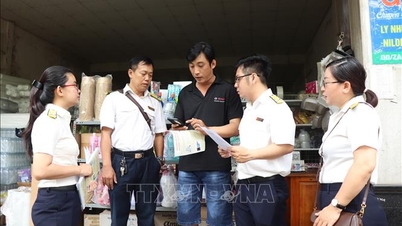

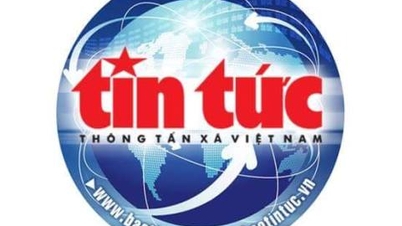

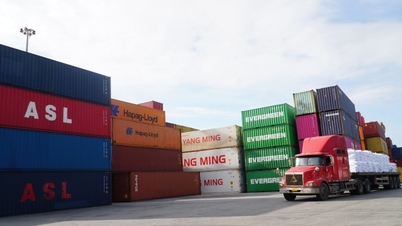



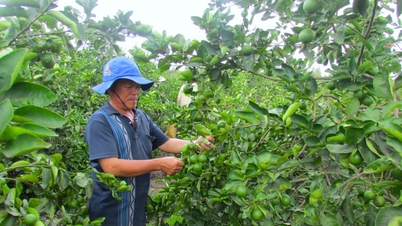





































































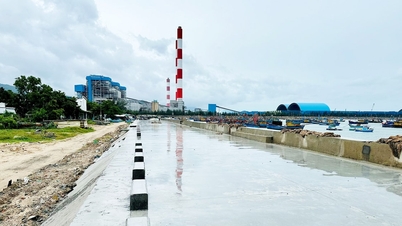













Comment (0)